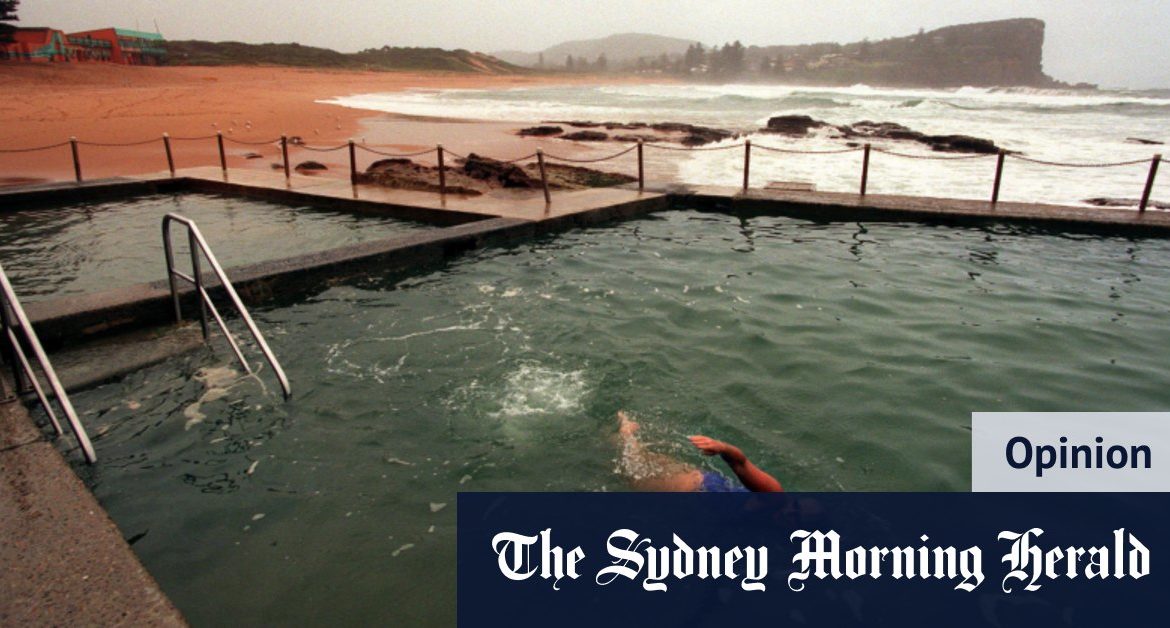I thought I’d speed through the testing procedure at 5.45am. Wrong. There were 60 people ahead of me. It was three hours before I felt the swab tickle each nostril.
The queue mood was of cheerful resignation, like a Christmas street party you’d rather avoid but know it’s your duty to attend. One elderly lady even rose from her chair, thoughtfully provided by a younger queue member, to join in an impromptu dance for the TV cameraman. As the overnight medical crew were relieved by fresh frontline workers, both were loudly applauded.
What Avalon has gone through in the past three days can’t be compared with other tragedies in this most historic of years. Luckily, we escaped the worst of the bushfires which put Australia ablaze. Many of us on the Northern Beaches like to think we’ve won life’s lottery. We’re usually immune: from earthquakes, floods, volcanic eruptions, mud slides and the other myriad disaster that befall “less blessed” parts of our planet. Yet here we are in a COVID crisis. On the weekend before Christmas, confined to quarters.
The cast of lifeguards from Baywatch never made it to Avalon.Credit:AP
Naturally the rest of Sydney is sympathetic to our plight, mixed with a sumptuous splash of schadenfreude. Not for nothing are we known collectively as “the insular peninsula”. Some residents north of “the Bends” – the twisting road that skirts Bilgola beach – even consider Newport too far south to warrant visiting. So, yes, we’d grown complacent about COVID – along with most of Australia as we’ve watched the crises grow ever worse in Trump’s US and Boris’s Britain. Apart from a non-fatal shark attack and the last known Australian case of attempted murder by speargun, Avalon Beach hasn’t featured so prominently on the TV news since Pamela Anderson and “the Hoff” were banned from filming Baywatch by a group of NOMBIES (“Not on my beach”) two decades ago.
As ever with Avalon, there’s a property angle. “It’s the people who had rented out their homes via Airbnb I feel sorry for,” said one lady in the coffee queue on Thursday.
“Couldn’t agree more,” said the codger unaware he was blocking the “order here” line rather than keeping social distance until his almond milk latte was ready. “What about those two super-spreaders who felt ill but still went to the rissole and the bowlo? Name and shame them, I say.” Hopefully, he’s never called for jury service.
Loading
But they have a point. Until now, Avalon has done well out of COVID-19. Founded by CBD property developer AJ Small in 1921, it’s named after the mythical domain of King Arthur. Despite its snooty, effete reputation, more than 70 per cent of Avalon’s residents were born in Australia and most are “tradies” or essential service providers (teachers, medical staff, cleaners, shop keepers, sole traders etc). But for the minority of those commuters whose livelihoods were governed by the B-Line bus into the CBD at 6.30am, returning home 13 hours later, COVID has been a lifestyle-saver. They – and more importantly – the beancounters have realised they’re both more productive and more cost-efficient working from home two or three days a week. As a result, property prices have soared. And with Bali or Aspen out of reach, Australian tourists have pushed up holiday rental prices too, tempting families to rent out their houses for the first time over Christmas so they can take the kids to Tasmania, South Australia or the Northern Territory. All those dreams are now in limbo.
But it’s an ill wind etc. To recapture the vibe in Washington’s hit, look on the bright side.
For the first time ever in Avalon a week out from Christmas, it’s easy to find a parking spot.
Woolies is empty. Any traffic is drowned out by the sound of cicadas and kookaburras.
And, so far, no one has died.







